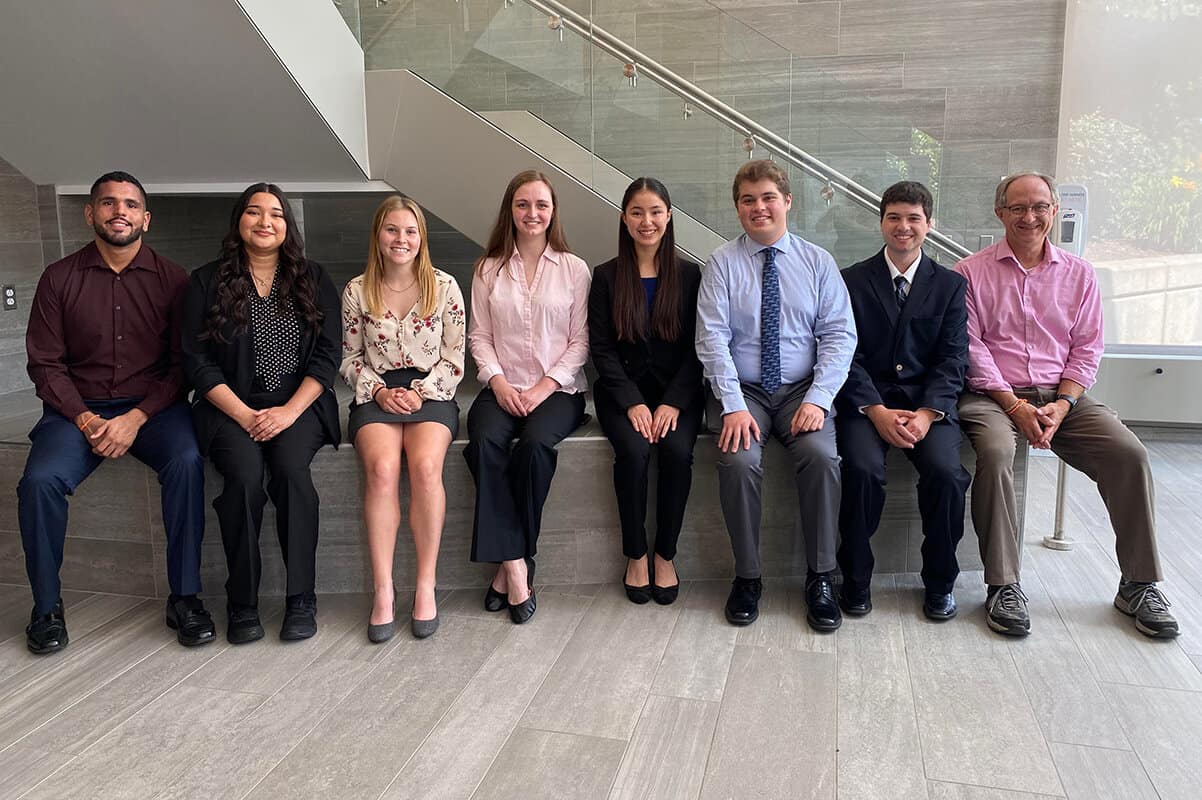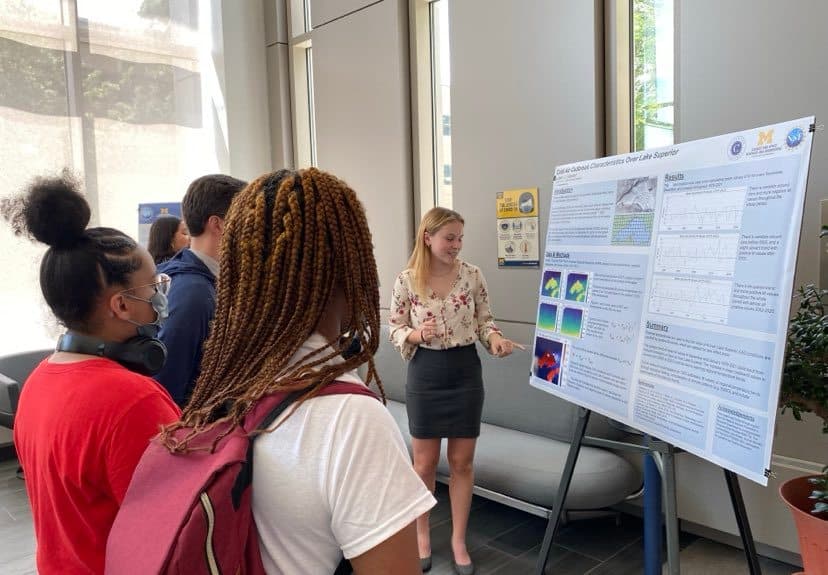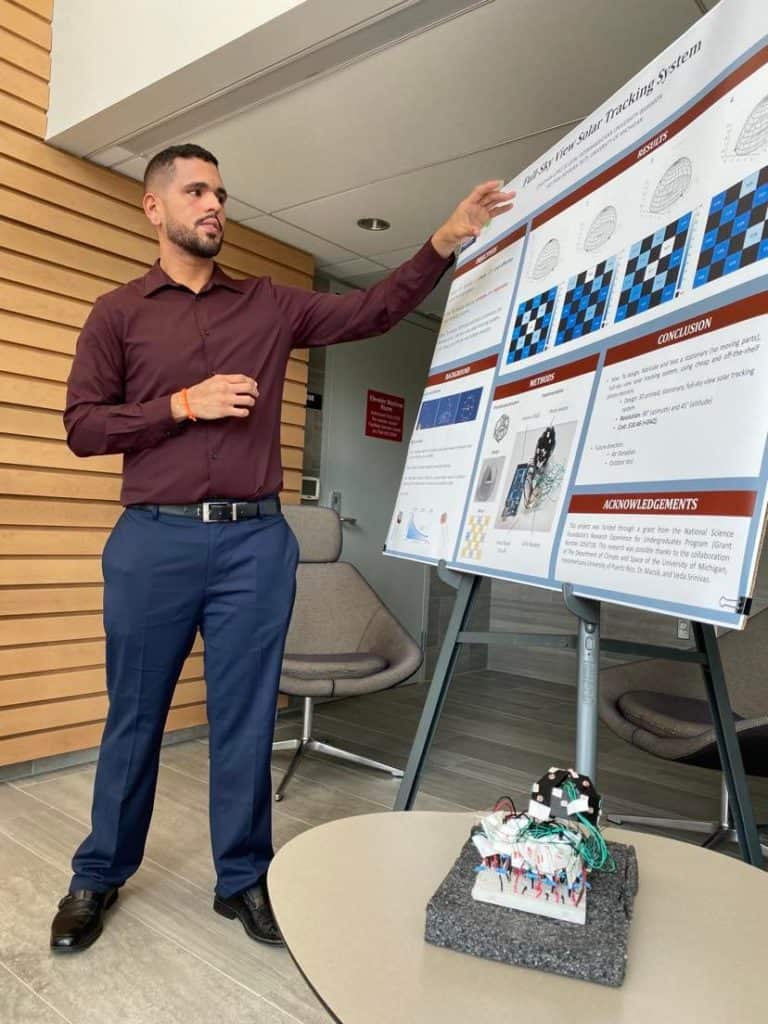
Sparking a Passion: PICASSO Scholars Travel to U-M to Study Climate and Space
A diverse group of students completed the Research Experience for Undergraduates in July, engaging in the climate and space sciences at U-M.

A diverse group of students completed the Research Experience for Undergraduates in July, engaging in the climate and space sciences at U-M.
A diverse group of students successfully completed the Research Experience for Undergraduates in July, immersing themselves in the Program in Climate and Space Science Observation (PICASSO) at U-M Climate and Space.
The program gives students from varied backgrounds and academic disciplines the chance to explore a potential career in STEM (Science, Technology, Engineering, and Math) in the fields of meteorology, climate, and space sciences. Often, the undergraduate college students come to the University of Michigan’s College of Engineering from small colleges or institutions that are not as focused on research in general, or the Climate and Space Sciences, in particular.
In the summer of 2022, the PICASSO program welcomed undergraduate students from the University of North Carolina – Asheville, University of Missouri, University of Utah, Orange Coast College in California, University of Wisconsin, Carleton College and Gustavus Adolphus College in Minnesota, and Interamerican University in Puerto Rico.
Led by Associate Research Scientist Frank Marsik, the students attended a series of professional development workshops, toured research facilities, received mentoring from graduate students and research staff, and built community through social activities and community service.

Participants worked with faculty and researchers in the U-M Department of Climate and Space Sciences and Engineering to make their own research projects a reality. Each student presented their final project results to a packed house during an “End of Program” poster session held in the Climate and Space Research Building lobby on Thursday, July 28.
Jonathan Lopez, from Interamerican University, Bayamon, Puerto Rico, built a Full-Sky View Solar Tracking System for his research project, with the goal of improving solar energy production. He said the REU program gave him the opportunity to take his ideas to the next level.
“It sparked a passion in me even more,” said Lopez. “I came out here hoping to work with solar energy, because I want to make changes in the fossil fuel industry to move to solar systems. The program gave me cool knowledge, and it also gave me new skills in electronics and programming to be able to create my vision.”
During the culminating event, Lopez displayed a working prototype in front of his research poster.

“We get to work with some really cool people,” said Anna Eifert, from Carleton College. For her REU project, she studied Cold Air Outbreak Characteristics Over Lake Superior. “It’s such an awesome program. It’s a great mentorship opportunity, as well.”
Aaron Johnson, from Minnesota, was surprised to learn about the laboratories, equipment and funding found on the campus of a major research university. He produced a poster on space weather, studying the Effects of Driving Parameter Filtering on SWPSNN Model Performance. Johnson was thrilled he had the opportunity to work with leaders in the field.
“There are so many experts in the field here, more than you might see at a small liberal arts college,” said Johnson. “It was really great coming to a large university that has so many resources.”
What surprised him even more was the connections he made with other students during the program. Traveling from across the United States to participate in the program, the student cohort planned to celebrate their final day together with activities in Ann Arbor, seeing the sights and attending an Escape Room.
“Going into this experience, I was expecting to work with a lot of very smart people but what I wasn’t expecting was all the great friendships I’ve made,” said Johnson. “We worked well together, and we were able to build off each other’s ideas.”
Sponsored by the National Science Foundation, the 10-week program takes place on the University of Michigan campus from May to July. Eligible students are encouraged to apply for the Summer 2023 program, which will begin accepting applications in the late fall.